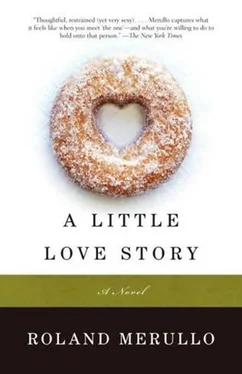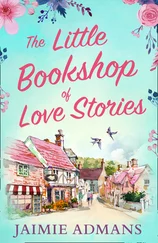“Nothing is harder to imagine, Mum,” I said.
“They weren’t always that way, the Mitchells.”
“No.”
“In fact, we liked them. Out of pity, I sometimes thought, but we liked them.”
“Never a good motivation,” I said.
I turned her back toward the main building and when we were inside I spent a little time with her in front of the communal TV, watching football-her latest passion. When I was ready to say good-bye she kissed me and held me in her strong arms as if she were still living in the two-hundred-year-old blue saltbox in Concord, and my father was still alive, beside her, smiling and puffing on his pipe, and my brother Ellory was still a hell-raiser who had not yet shocked the neighborhood by turning Catholic and becoming a monk, and my sister Lizbeth was just a pretty teenager who had not yet made her life into a constant search for drugs and the money to buy drugs. For those few seconds my mother squeezed the guilt and sorrow out of me and we traveled back to a place where we had been happy, unusually happy, unscarred, suburban, American, bubbling over with health and brains and energy, convinced the future would be kind and good. Our embrace was a kind of code. “I’m still me,” she was signaling. And I was answering, “I know. I know.”
But I left Apple Meadow wondering how many years she would live like that, and what it felt like inside, and whether it really made any difference at all to her if I visited or stayed away.
YOU CALLED AT a key moment,” I told Gerard on Monday morning, when he asked why I hadn’t answered the phone to tell him about my date with Janet at Diem Bo.
“There are three key moments.”
“It was the second.”
“That’s it? No details?”
“Have I ever provided details about my love life?”
“Not in a year or more, no. I was only giving you the opportunity to enjoy the experience a second time by telling the story to your closest friend.”
“Thanks. I’ll pass.”
“I’m hurt.”
“We went to Diem Bo for supper. How’s that?”
“What did you have?”
“Scallops and sea bass and duck.”
“ La frutta di mare . Good. And where did you go afterwards?”
“For a swim.”
“Skinny-dip?”
“Fully clothed.”
“Alright, stop there,” he said. “For an imagination like mine, that’s enough. The possibilities from that point are endless.”
“In the Charles River,” I said.
“No no, don’t spoil it, Colonel. Let the imagination run free. Let it run wild! The Charles’s fetid waters lapping against her tight bodice. You in your Sunday best, your trousers wet and your manhood surging against the material. No, leave me to my imaginings. Please.”
I left him to his imaginings.
We had finished framing the professor’s addition and were involved in the monotonous nailing of half-inch plywood onto the second-floor walls. The professor’s name was Jacqueline Levarkian and she taught theoretical physics at Harvard. She was an attractive and obviously brilliant single woman, and from the day we’d started working there, in midsummer, Gerard had been trying various stunts to get her to pay attention to him. Once, when he knew she was home, he pretended to slip off the staging and dangled there, holding on with one hand and screaming out over the sedate Cambridge neighborhood for me to rescue him, pedaling his legs and gesticulating wildly with his free hand, three feet above the ground, like a circus clown. Two or three times during the workday he’d flip his thirty-two-ounce hammer into the air, end-over-end, three full revolutions, catch it expertly by its blue handle, and pretend to be making up physics formulas to describe the hammer’s movement (“You take the cosign of s , where s represents the centrifugal force of the atomic weight of steel…”). He’d sing snatches from operas he liked. He’d bring books of poetry-Latin, Russian, Italian, Greek-to the work site to impress her. Once, when Jacqueline had an afternoon off, she brought us out homemade oatmeal cookies and iced tea and Gerard engaged her in a complicated discussion of something called string theory, then kissed her hand afterwards.
I knew this about my friend: early in his life he had not been given some quality of motherly or fatherly attention that says: I see you. You are fine as you are, flaws and all. You are accepted, you are beloved. And ever since then he had tried to fill up that empty place by getting attention, especially from women. Which had not made marriage an easy thing for him. Or for his former wife. With me, he talked too much and joked too much and laughed too loudly and called at all hours. But he could work like a pair of oxes, and I had never seen him be mean, and when Giselle died, he made sure I never sank below a certain level of rock-bottom misery and I did not expect I would ever forget that.
I picked up a sheet of plywood, leaned it sideways against my hip and shoulder and the side of my head, and then passed it up to him on the staging.
“Huddy! Queek!” he screamed as I was climbing the ladder. “Eeet eez sleeping from my grahsp!”
When we had worked it into place and were driving the galvanized eightpenny nails at six-inch intervals, I asked him if he knew anything about cystic fibrosis.
“Jerry’s kids,” he said, going into a terrible imitation of Jerry Lewis’s honking, bighearted goofiness.
“That’s muscular dystrophy. I’m asking about cystic fibrosis. CF.”
“All the alphabet diseases are awful, Colonel, I know that much. AIDS, ALS, MS, Ph.D.”
“Is this something we want to be joking about?”
“If it is what I think it is, then one of the only things we can do is joke about it, Colonel. You should understand that.”
“Right. The woman I went out with on Friday night has CF.”
“Sorry.”
“Don’t worry about it. You need a governor on your mouth, though, sometimes.”
Governor on your mouth. Amazing how things like that just slip out. Gerard, naturally, would not let it go.
“Actually, if I had incarnated into a woman’s body, I wouldn’t mind the governor on my mouth. Our governor is one cute governor compared to, say, the governor of New Mexico…” and so on until I finally told him to stop, twice, and he did.
When we finished the nailing and were putting our tools away, I asked him if I could come over and do a little research on his computer, and I did that, then went home and painted for a while on a fresh canvas. But the work was timid work, uninspired, unsurprising, no good. As if they were marching on a parade ground behind my eyes, I could feel whole battalions of jealous soldiers in new uniforms. And I could hear a lying old self trying to convince me that Janet was a one-night type of woman. Skate on, skate on, the voice said. Too much trouble. Skate on. I gave up on the painting, cleaned the brushes, turned the easel around so I wouldn’t have to look at what I had done. After thinking about it for another little while I picked up the phone and called Janet to ask her out again, and we didn’t talk about the governor, or the alphabet diseases, or any kind of subject like that.
O c t o b e r
IN BOSTON, OCTOBER is the month when you have to stop pretending to yourself that the good weather will go on and on. The leaves catch fire and swirl out gold and lemon patterns at the bases of maple trees, but it’s just a last show meant to take your mind away from the fact that things are dying all around. If you work outside, you can feel this dying very plainly in late October in the afternoon. The cold Halloween air has an unsympathetic quality to it. Lights blaze out from storefronts and third-floor apartments, but the darkness seems to swallow them after they’ve traveled only a few feet so that they feel cut off from each other, isolated pockets of warmth that offer themselves happily and optimistically but really are only hoping to make it through another night.
Читать дальше












